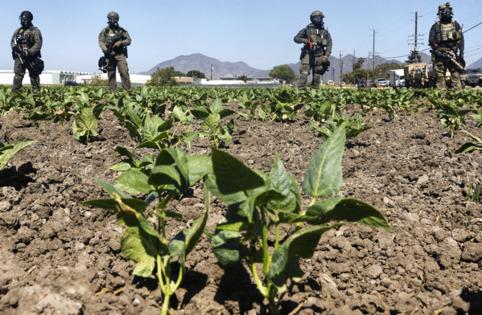Commentary: Donald Trump wants to deport migrants to South Sudan. What awaits them isn't pretty
Published in Op Eds
When I saw the news a few weeks ago that President Donald Trump’s administration was trying to deport eight men to South Sudan, I was shocked. I had worked and lived in South Sudan as a diplomat and know the country well. It is on the brink of yet another civil war, and its government has a horrific human rights record. America’s own travel warning for the country, updated most recently this March, is Level 4: Do Not Travel.
The United States evacuated its nonemergency staff from the embassy earlier this year due to ongoing armed conflict and high levels of violent crime. It advised any Americans who choose to travel there anyway to draft a will, establish a proof of life protocol with loved ones in case they’re taken hostage and prepare their family to manage their affairs in the case of their death. These are not warnings the U.S. government issues lightly.
Of nearly 200 countries on earth, why choose this as a deportation destination? Only one of the men deported there is from the country. The others have no ties to South Sudan whatsoever — rather, they come from Myanmar, Laos, Vietnam, Cuba and Mexico. None of those are even on the African continent. This puts most of the men on a far, difficult and expensive journey away from anywhere they know. The only purpose would be to punish these individuals and to instill fear in any others considering migrating to the United States. The Statue of Liberty’s promise has been turned on its head.
South Sudan is one of several countries where this administration seeks to deport migrants, regardless of country of origin. This includes El Salvador, where hundreds have been detained in a notorious prison, but the Trump administration is also considering war-torn Libya, corrupt Equatorial Guinea and authoritarian Rwanda, to name a few.
As someone who has worked in South Sudan, I can speak to what migrants could face there specifically, and it isn’t pretty. I wrote our annual human rights report on the country and was responsible for assisting American citizens there in need. This means I have documented the detention and prison conditions, the government-perpetrated violence and the futility of its justice system. It also means I worked to help U.S. citizens caught up in it — often detained unlawfully and stuck for weeks or longer in prisons with horrific conditions, usually sick, and with no recourse until they typically bribed their way out.
For a place with few comforts to offer, conflict and corruption have also made South Sudan incredibly expensive. Someone without a network for support or any knowledge of the country will only be that much worse off.
Neither the U.S. nor the South Sudanese government has indicated what fate awaits these men in the capital city, Juba: Will they be detained or released and what then? Will they have any help securing onward travel? Will they have contact with their families? Will they be able to work to earn enough to support themselves or to earn a ticket out? What conditions — if any — did the U.S. government negotiate for their presence?
South Sudan’s government is violent, unaccountable and corrupt, so I wouldn’t put much faith in its commitments anyway. It also needs money, and I expect that’s what it got in return. In April, the U.S. government revoked all South Sudanese visas as punishment for the country after its government refused to accept a deportee who was in fact from the Democratic Republic of Congo. Cooperating probably has more appeal now.
Unlike most migrants detained by Immigration and Customs Enforcement this year, these eight men are indeed convicted criminals, though many had either finished or were soon to finish serving their sentences. Being sent to an unfamiliar war zone far from their countries of origin, families or communities must feel like another criminal sentence.
How and why did this happen? The due process rights of all people — not just citizens — in the United States have been well established by now. The Supreme Court ruled as recently as this May that deportees must be given a proper chance to raise legal objections to their removal to a third country. But, in the case at hand, weeks of legal battles over that right ended in July with the Supreme Court ruling that these deportations could go ahead anyway.
Their case has been met with curiosity but little outrage. Perhaps it’s because only a few people were affected. Or the criminal convictions make it easier to dismiss inhumane treatment. Or maybe the American public is just growing accustomed to our government treating migrants in this way.
But Trump has made clear he doesn’t plan to stop with migrants. His Justice Department is already looking into denaturalizing citizens who have committed crimes and detaining American citizens in foreign prisons.
We should be more alarmed, if not for the treatment of these migrants, then for the dangerous precedent it sets that could affect us all.
____
Elizabeth Shackelford is senior policy director at Dartmouth College’s Dickey Center for International Understanding and a foreign affairs columnist for the Chicago Tribune. She was previously a U.S. diplomat and is the author of“The Dissent Channel: American Diplomacy in a Dishonest Age.”
___
©2025 Chicago Tribune. Visit at chicagotribune.com. Distributed by Tribune Content Agency, LLC.

























































Comments